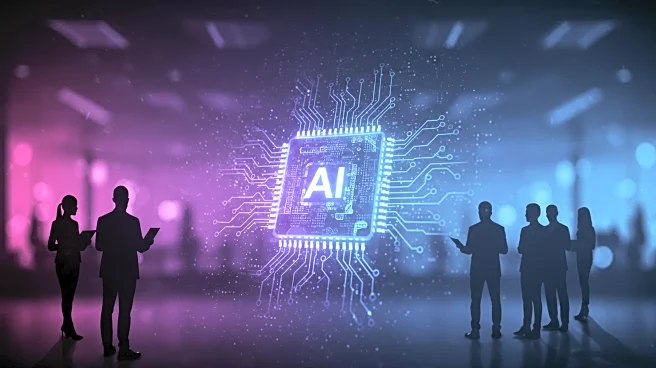What's Happening?
Jeetu Patel, President and Chief Product Officer at Cisco, has publicly rejected claims that artificial intelligence will lead to widespread job losses, particularly among entry-level positions. Patel's comments were made during the Ai4 conference in Las Vegas, where he countered statements by Anthropic CEO Dario Amodei, who predicted that AI could cause unemployment rates to rise significantly and eliminate many white-collar entry-level jobs. Patel emphasized the importance of integrating younger workers into the workforce, arguing that their fresh perspectives are crucial for innovation. He believes that eliminating entry-level positions would be detrimental to companies in the long term, as it would remove the influx of new ideas and perspectives that young employees bring.
Why It's Important?
The debate over AI's impact on employment is significant as it touches on the future of work and economic stability. Patel's stance highlights the potential benefits of AI in transforming job roles rather than eliminating them, suggesting that workers may need to adapt by acquiring new skills. This perspective is crucial for policymakers and business leaders as they navigate the integration of AI technologies in the workplace. The potential reduction in entry-level jobs could affect recent graduates and young professionals, impacting their career prospects and economic mobility. Patel's emphasis on the importance of entry-level positions suggests a need for balanced strategies that incorporate AI advancements while preserving job opportunities for new entrants to the workforce.
What's Next?
As AI continues to evolve, companies may need to develop strategies to integrate AI technologies without displacing workers. This could involve retraining programs and educational initiatives to equip employees with the skills needed to work alongside AI. Patel's comments may influence other tech leaders and companies to reconsider their approach to AI adoption, potentially leading to industry-wide discussions on how to balance technological advancement with workforce stability. Additionally, policymakers might explore regulations or incentives to encourage companies to maintain entry-level positions and invest in workforce development.
Beyond the Headlines
The ethical implications of AI in the workplace are profound, as they raise questions about the responsibility of tech companies in managing societal impacts. Patel's remarks suggest a need for the tech industry to take an active role in ensuring that AI integration does not lead to social disruption. This could involve collaborations with educational institutions and government bodies to create pathways for workers affected by AI-driven changes. The long-term cultural shift may involve redefining the concept of work and employment in an AI-driven economy, emphasizing adaptability and continuous learning.









